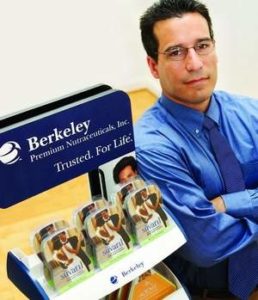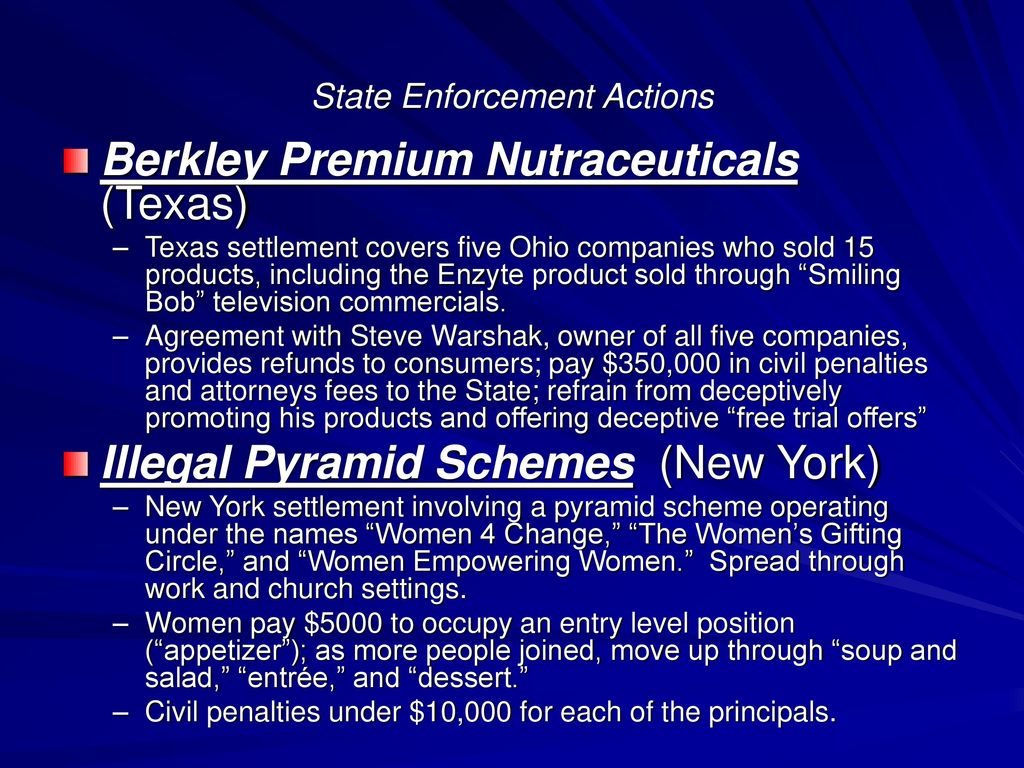The Story Of Enzyte And Why The Natural Male Enhancement Company Owner Was Indicted
Perhaps one of the most popular of all supplement scams in recent years have been Enzyte.
The maker of dietary supplements that claim to improve everything from sexuality to memory defrauded thousands of customers and banks of at least $100 million, federal authorities say.
A federal indictment names Berkeley Premium Nutraceuticals, its owner and president, Steven Warshak, and five other individuals, including Warshak’s mother, on charges that include conspiracy, money laundering, and mail, wire and bank fraud. They are accused by federal authorities of luring customers with free-trial offers and money-back guarantees, then billing their credit cards without authorization.
 Warshak, who has 107 counts against him, denies the accusations and will continue to operate the company, his attorney said Thursday.
Warshak, who has 107 counts against him, denies the accusations and will continue to operate the company, his attorney said Thursday.
The company, which recently said it has 5 million customers worldwide, is known for its “Smiling Bob” ads that depict a man whose life gets better after he uses the company’s Enzyte for “natural male enhancement.” The company markets nationally a variety of other products claiming to help everything from night vision to memory to female libido.
The company, based in suburban Forest Park, also used false advertising, the indictment charges. In one example, Wednesday’s indictment cited ads placed in Penthouse and other male-oriented magazines that claimed Enzyte was developed after years of study by two doctors, one at Harvard and the other at Stanford.
“The company president and others made up information in their advertisements, such as endorsements by doctors that did not exist, and results of customer satisfaction surveys that had never been conducted,” U.S. Attorney Greg Lockhart said.
Customers with complaints were told to write to a director of customer care who did not exist, the indictment alleges.
The Food and Drug Administration, Internal Revenue Service, postal inspectors and other agencies participated in the investigation.
The indictment says at one point, Berkeley marketed a supplement called Rovicid as a prostate health product for men, but later relabeled old stocks of Rovicid as a cardiac health supplement for men and women.
A court appearance for the defendants was scheduled for Sept. 28. Martin Weinberg, Warshak’s attorney, said he will plead not guilty and “vigorously assert his innocence to all charges.”
Several charges, including conspiracy to commit mail, wire and bank fraud, that Warshak faces each carry sentences of up to 30 years in prison with conviction.
“We believe the government converted what in its essence is a civil and regulatory issue into this broad criminal indictment,” said Weinberg, who is based in Boston.
In March, Berkeley agreed to pay $2.5 million to settle allegations brought by the attorneys general in Ohio and other states that the company engaged in deceptive practices in the sale of its herbal products. As part of the settlement, Berkeley and Warshak did not admit any wrongdoing.
Five of the company’s former executives have pleaded guilty in U.S. District Court to defrauding customers through a product giveaway program that led to unauthorized billing of their credit cards.
Federal authorities have frozen $25 million in assets held by Warshak and members of his family, and Lockhart said authorities will continue to try to recover money to give victims.
Berkeley generated about $250 million in sales in 2004, mostly from telephone orders spurred by TV ads.
In a recent advertisement in The Cincinnati Enquirer, Berekley said: “We have invested heavily in major improvements designed to overcome our early growing pains. The net result of these investments is that today we have more than 5 million customers worldwide, and our customer service is better than most of the Fortune 500 companies.”
The U.S. Food and Drug Administration (FDA) doesn’t evaluate the safety and effectiveness of dietary supplements such as vitamins, minerals, herbal remedies, enzymes and probiotics, but that doesn’t stop people from consuming them in the hope of attaining smoother skin, stronger muscles, sharper minds or better health. Seniors, in particular, are big users: A 2017 study based on federal health data found that 70 percent of Americans 60 and older take at least one supplement, and 29 percent report using four or more daily.
Supplements can have genuine health benefits — helping us meet changing nutritional needs as we age, for example. Unfortunately, the supplement trade also attracts plenty of scammers who spread disinformation in order to hype questionable products and entice the unwary with deceptive marketing schemes.
Beware Of FREE No-Risk Offers
If you’re skeptical, scammers have another enticement — a free, no-risk trial offer. What have you got to lose? Money, and potentially a lot of it. You’ll probably be charged a nominal shipping fee, but that allows the fraudsters access to your credit card information. They may go ahead and bill you for the full price of the product or enroll you in a long-term subscription costing hundreds of dollars a year, under terms that are undisclosed or buried deep in the fine print.
These scams can hurt more than your bank account. Supplements, even those described as “natural,” may pose health risks. Some interact harmfully with particular medications or alter their effectiveness. Worse yet, in recent years regulators have discovered that hundreds of supplements are tainted with prescription drugs and other potentially dangerous chemicals.

